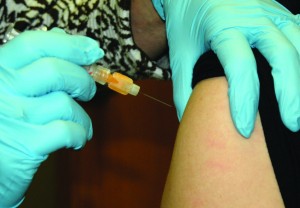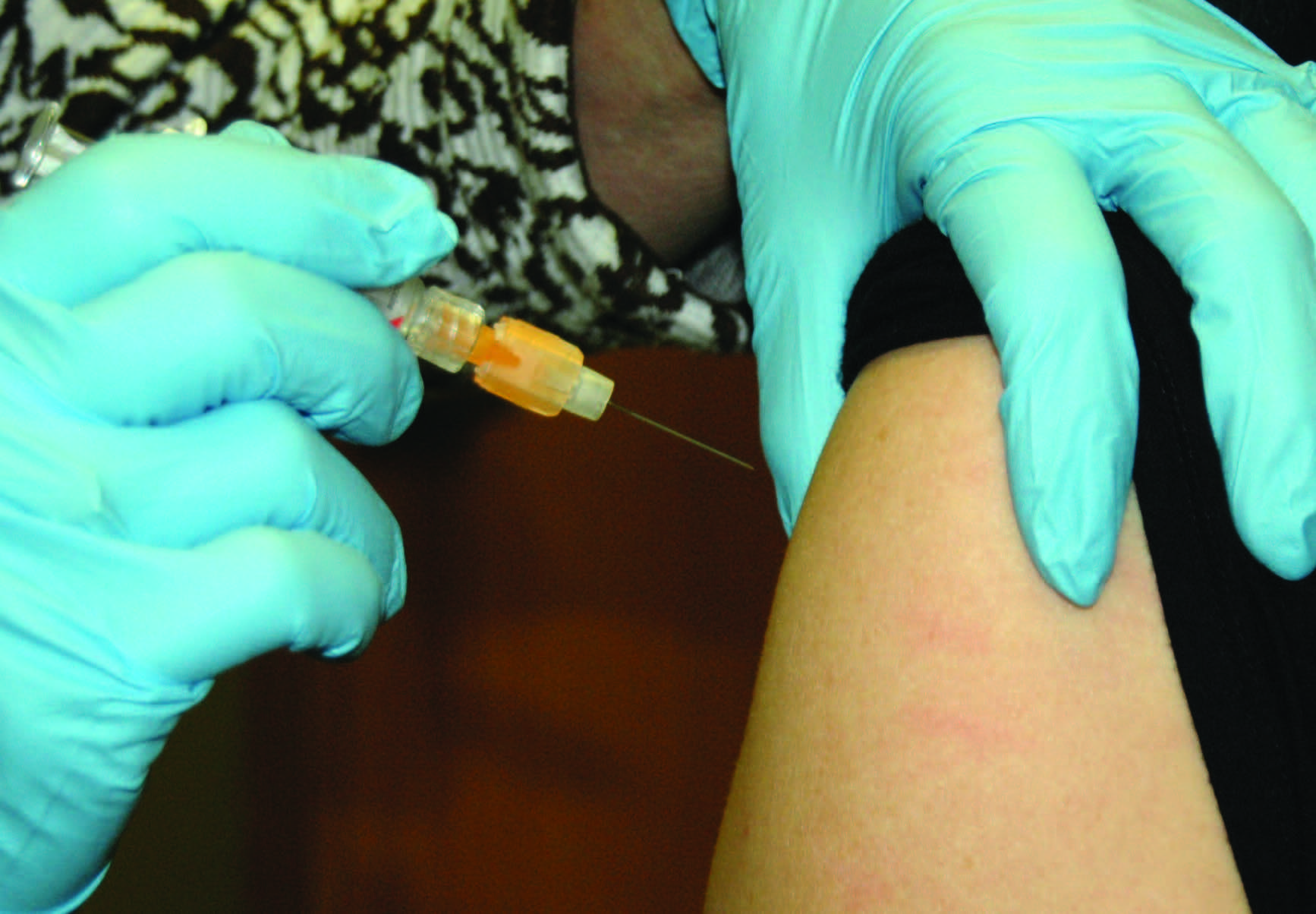By Steve Knight/editor-in-chief

TCC flu task force officials, still unsure about the arrival date of the H1N1 flu vaccine, continued making preparations for a possible outbreak, determining a priority system of immunization administration similar to guidelines set by the Centers for Disease Control and Prevention.
Depending on the amount of H1N1 flu vaccine the college receives, Bill Lace, interim vice chancellor for administrative and community services, said faculty and students in health-related programs who rotate to clinical or patient-care sites would be immunized first.
Pregnant faculty, staff and students would be next, then those who are at risk because of existing medical conditions.
Faculty, staff and students living with children under six months old would receive the immunizations next, followed by faculty and staff who are less than 24 years old, Lace said.
All others would be next. However, Dr. Woody Kageler, influenza task force coordinator, said in an e-mail that it would be prudent for those in the last group to make other arrangements to obtain the H1N1 vaccine.
“Right now, there is no mention of the general population although we all believe there will be sufficient vaccine later in the year or perhaps early next year to immunize everyone,” he said.
“The only exception to this is that TCC will not be immunizing children. Our focus will be on our employees and students in the priority groups.”
In a Sept. 23 e-mail, Lace told instructors to develop a plan to communicate with and assist students who may have prolonged absences.
Lace told instructors to use CampusCruiser assignments or e-mail attachments to handle missed exams and class work because of illness.
“Include a statement concerning the necessity and responsibility of students staying in touch via CampusCruiser e-mail,” he said. “Announce this plan two to three times in class to students.”
Administrators informed students by an announcement on CampusCruiser Sept. 28 that health officials were currently treating all flu cases as H1N1 flu.
To protect TCC staff and students and to attempt to monitor the location and extent of flu at the college, officials developed an illness reporting form on the Web site at http://www.tccd.edu/FluReporting, the statement said.
Although voluntary, it is important that students document the absence and notify the college through the reporting form on the Web site, especially with H1N1 flu, Lace said.
Tarrant County Public Health and Fort Worth ISD confirmed that 14-year-old Chloe Lindsey of Benbrook died at an area hospital from the H1N1 virus after seeing a doctor earlier in the week.
“TCPH continues to aggressively monitor the incidence of seasonal and H1N1 flu in our community,” a Sept. 29 statement from the health department said. “We will continue to communicate with the medical advisory committee that we established earlier this year and other partners in the medical and public health community.”
As of Sept. 19, county health officials said 23 patients required hospitalization.
County health officials said ways to fight the flu include keeping hands clean, covering the mouth with a sleeve when coughing and sneezing, avoiding touching the eyes, nose or mouth, avoiding close contact, staying at home when sick and getting vaccinated for both strains of flu.
TCC officials recommend purchasing a thermometer to monitor body temperature.
According to the government-managed Web site flu.gov, the symptoms for all flu are somewhat similar and include fever, cough, sore throat, runny nose, body aches, headaches, chills and fatigue.
Some H1N1 sufferers reported vomiting and diarrhea in addition to the other symptoms.
The Centers for Disease Control and Prevention recommended on its Web site that patients should stay home until they are free of fever above 100 degrees, or signs of fever, for at least 24 hours without fever-reducing medication.
Target groups recommended
to receive the H1N1 influenza
vaccine include:
Pregnant women
Household contacts and caregivers for children younger than 6 months of age
Health care and emergency medical services personnel
All people from 6 months through 24 years of age
People 25 through 64 years of age who have health conditions associated with a higher risk of medical complications from influenza.
Source: Tarrant County Public Health

